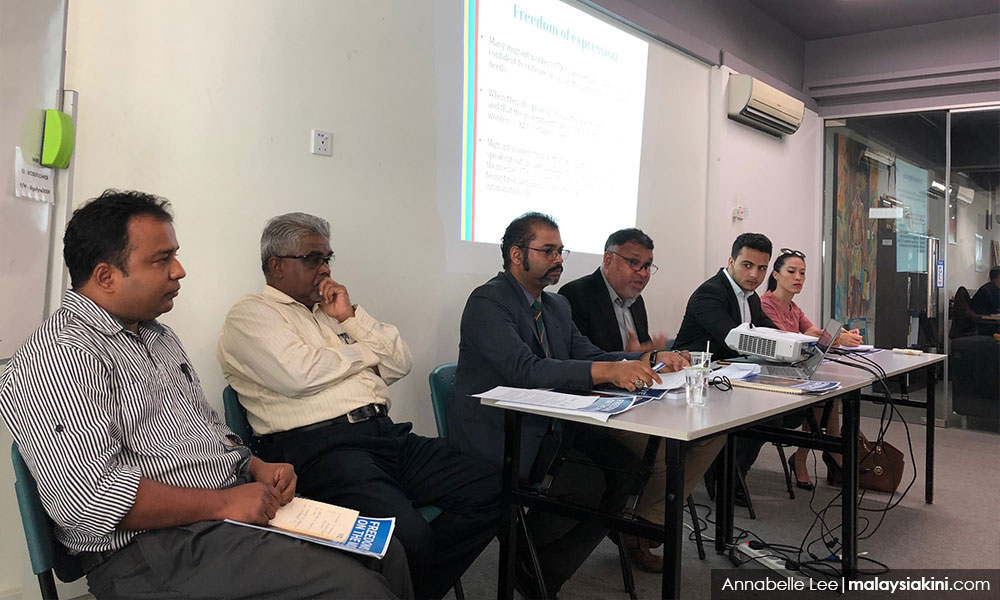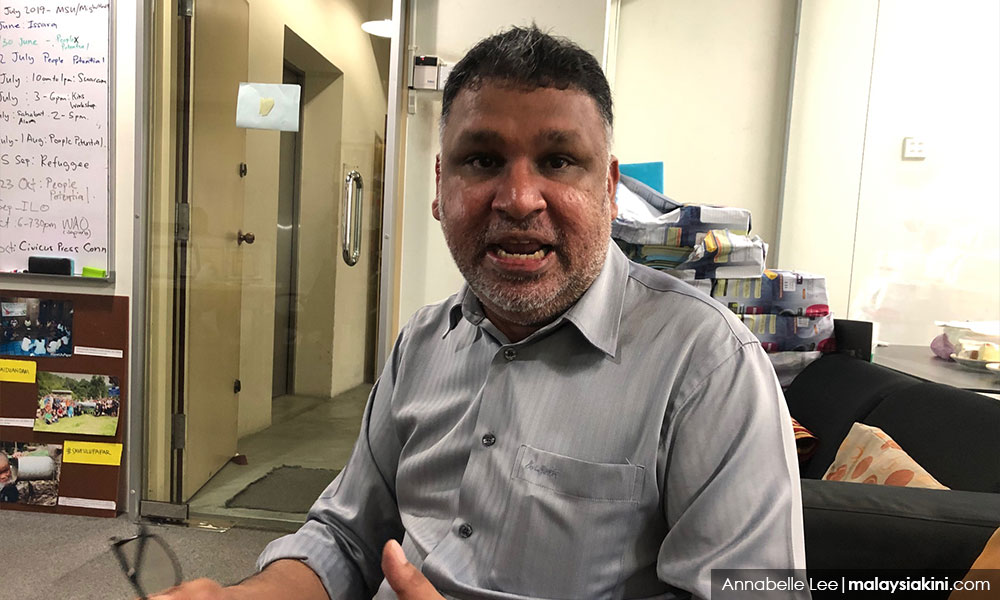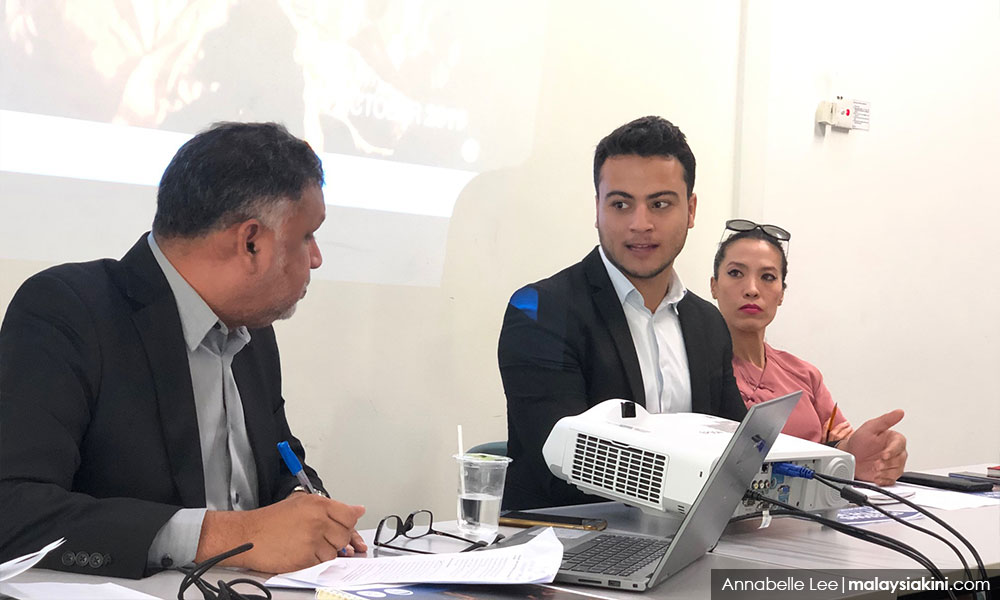In 2018, a Somali refugee boy had walked down from his Selangor apartment to take out the rubbish when he was detained by the authorities for not having his UNHCR card on him.
Despite claiming he had left the card at home, he was later deported back to Somalia where his father had been killed in one of the conflicts going on there.
Meanwhile, in another part of the country, migrant workers work 16 hours, seven days a week in a rubber factory.
They need to seek permission from their employers if they want to leave the premises, and filing leave applications will possibly get them fired.
Such stories are becoming increasingly common in Malaysia, but a recent survey found that migrant workers and refugees face significant challenges in speaking up about their problems - which in turn allows for the perpetuation of injustices.
The above two cases were shared during the launch of the "Freedom On The Move" study yesterday.
Commissioned by South Africa-based NGO Civicus, it concluded that most migrant workers (79 percent) and refugees (89 percent) in Malaysia did not feel confident to “criticise or call on authorities to meet their needs”.

Migrant workers were most afraid of their employers and business owners (46 percent). The survey also noted that some workers felt intimidated to speak up as their employers held on to their passports.
Refugees were most concerned about the police and other state agents (65 percent).
The 82 migrant workers interviewed were from Bangladesh, Nepal, Indonesia and the Philippines. The 65 refugees interviewed were Rohingya (Myanmar), Yemeni, Palestinian and Syrian.
Freedoms limited by employers, language
For migrant workers, the language barrier was the biggest challenge to exercising their freedom of expression (73 percent), followed by a lack of information (47 percent) and a fear of being fired, detained or deported (45 percent).
Similarly, refugees faced significant language barriers (55 percent) but harassment and intimidation were also a serious concern (49 percent).
The survey further explored challenges the groups faced when exercising other civil liberties.
When it came to freedom of association, it found that 73 percent of migrant workers and 77 percent of working refugees faced “harassment or pressure from employers” in exercising their labour rights.
The survey also noted that some migrant workers were often “coerced” by agents or their employers to refrain from joining a workers' union.
As for freedom of peaceful assembly, most migrant workers did not feel safe participating in street protests (85 percent).
Nevertheless, 62 percent of migrant workers interviewed said they had previously participated in protests or memorandum handovers in Malaysia.
In contrast, refugees had a starkly different experience, with 72 percent saying they had not taken part in any protests. Rohingya refugees were the exception.
Most refugees believed they were not safe (83 percent) and not free (75 percent) to fully exercise their freedom of peaceful assembly.
The survey was part of Civicus’ global study that looked at the perceived civic space of migrant workers and refugees in Malaysia, Mexico, Kenya, Jordan and Germany.
'Human rights don't stop at border'
While fundamental freedoms guaranteed in the Federal Constitution of Malaysia only apply to citizens, Civicus researcher Josef Benedict contended that human rights should extend to all human beings.

“Human rights do not stop at the border. When you enter a country and you work from there, you want to be able to voice out opinions if you see something wrong.
“If people are frightened to even raise the issue of ‘why is my pay being cut’ or ‘why am I being laid off from work’; how else can they express these issues?
“These are issues that even Malaysians would want to express if they are affected, so why deny it to migrant workers and refugees?” he told Malaysiakini after the launch of the Civicus report in Petaling Jaya yesterday.
Benedict thus urged Putrajaya to create an enabling environment for migrant workers and refugees to access their rights and freedoms, regardless of their legal status.
He said all bilateral and multilateral agreements between nations should also guarantee these rights and freedoms, and punish violations.
Zero knowledge about rights
A key challenge to empowering migrant workers and refugees was a lack of awareness among the communities about their own rights.
Most Bangladeshi migrant workers to whom North-South Initiative (NSI) social mobiliser Abu Hayat Md Rafiqul Rezvi spoke to for the Civicus survey were poor and with limited levels of education. They also had “zero knowledge” about their fundamental freedoms.
“They did not know anything about the three freedoms of expression, peaceful assembly and association. Only a few workers, maybe one or two, have basic knowledge about unions,” Abu Hayat said during the report launch.
Despite the often terrible working conditions, he said this lack of awareness, coupled with intimidation from employers, caused these workers to be afraid of protesting.
Participating researcher and Syrian refugee Omar Alkhammash shared that most refugees he interviewed were afraid of being identified in the survey, over the fear of repercussions against them.

The Geutanyoe Foundation Malaysia media and communication coordinator explained how many refugees had run away from repressive governments where speaking up against injustices could possibly lead to deadly consequences.
Facing difficulties in a foreign land caused the refugees to continue to stay silent.
“Over here (in Malaysia) refugees are focusing more on healthcare, working rights and education, more than on having civic space.
“But they don’t understand that civic space is the way to lead them into their targets,” Omar said.
The Malaysian government does not officially recognise refugees and regards them as undocumented foreign nationals.
They must pay the higher rates imposed on foreigners at public healthcare facilities and are also not allowed to gain formal employment or enrol in public schools.

